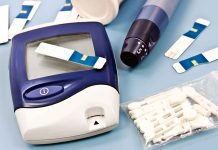
(AscendHealthy.com) – Many people turn to over-the-counter medications during both cold and allergy season to help manage nasal congestion. Some of the decongestants used have ingredients that can spike blood pressure, especially if you already have the condition.
Hypertensive patients with a cold or allergy must be mindful of the composition of nasal sprays they use. This post highlights the specific ingredients to watch for in these medications and the healthier alternatives available.
Ingredients That Contribute to Rising Blood Pressure
A cold or allergy causes the nasal membranes to swell and increase mucus production. Nasal sprays constrict the blood vessels and provide instant relief from such symptoms but increase blood pressure and heart rate. The ingredients responsible for these reactions include:
Pseudoephedrine
Nasal sprays are among the 135 medication types to contain pseudoephedrine. This ingredient provides relief from nasal congestion due to allergies or colds, though at the expense of your health.
Research shows that pseudoephedrine increases the systolic blood pressure by one point and the heart rate by three beats per minute whenever used. “It’s chemically similar to adrenaline, so our bodies see it as adrenaline and increase blood pressure and heart rate,” says Kayla Ryan, an experienced pharmacist.
In 2005, the FDA issued the Combat Methamphetamine Act, requiring all drug stores to sell the drug behind the counter and disclose its information to patients publicly.
Topical Decongestants
Pseudoephedrine isn’t the only nasal spray on the FDA’s radar. It requires other decongestants such as oxymetazoline, naphazoline, and phenylephrine to warn individuals with high blood pressure.
Medication Options That Don’t Affect Blood Pressure
There are several ways to treat a cold or allergy without raising blood pressure. The recommended ones include:
- Saline Drops: Thins the mucus in the sinuses and relieves congestion without raising blood pressure or heart rate.
- Coricidin: An over-the-counter drug containing active ingredients that target colds and flu without spiking blood pressure.
- Suction Bulb: Gently suck the mucus out of the nose using a suction bulb. This method is suitable for babies under six years of age.
- Humidifying: Increasing environmental humidity clears the nasal passages and moistens the air.
- Benadryl: Also known as Diphenhydramine, this medication clears your sinuses. It is preferable for those with a running nose.
- Guaifenesin: Contains Mucinex that helps cough out congested mucus without affecting blood pressure.
Discuss Your Options with a Doctor
Now that you know the effect nasal sprays have on your blood pressure, start looking at other healthier decongesting options. Talk to a doctor about the viable options as our bodies are created uniquely. Remember, what works for another might not be suitable for you.
Copyright 2023, AscendHealthy.com




















